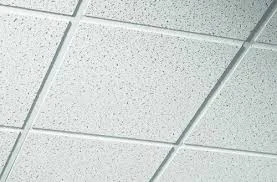Dec . 17, 2024 04:45 Back to list
gypsum vs pvc ceiling
Gypsum vs PVC Ceiling A Comprehensive Comparison
When it comes to interior design, the choice of ceiling material can significantly impact the aesthetics, functionality, and comfort of a space. Among the popular options, gypsum and PVC (polyvinyl chloride) ceilings stand out due to their unique properties and applications. This article delves into the benefits and drawbacks of both materials to help homeowners and designers make informed decisions.
Gypsum Ceilings An Overview
Gypsum ceilings, often used in residential and commercial spaces, are made from gypsum plasterboard or gypsum tiles. These ceilings are renowned for their fire-resistant properties, aesthetic versatility, and sound-dampening capabilities. Typically, they are installed in a grid system or directly on the ceiling joists, offering a smooth and seamless finish. Gypsum ceilings can also be easily painted or decorated, allowing homeowners to customize their appearance according to their preferences.
Benefits of Gypsum Ceilings
1. Fire Resistance One of the standout features of gypsum ceilings is their excellent fire-resistant properties. Gypsum is a non-combustible material that can help slow the spread of flames, making it an ideal choice for safety-conscious homeowners.
2. Sound Insulation Gypsum ceilings provide effective sound insulation, reducing noise transfer between rooms. This is particularly beneficial in multi-story homes or apartments where privacy is a priority.
3. Aesthetic Flexibility Gypsum ceilings can be crafted into various designs, including coffered, tray, or curved styles, enabling a wide range of architectural aesthetics.
4. Environmentally Friendly Gypsum is a natural mineral, and many gypsum products are made from recycled materials, making them an environmentally conscious choice.
Drawbacks of Gypsum Ceilings
1. Weight Gypsum ceilings can be heavier compared to other ceiling materials, which may require additional structural support in some cases.
2. Moisture Sensitivity Gypsum is susceptible to moisture damage. In areas with high humidity or moisture exposure, such as bathrooms and kitchens, gypsum ceilings may warp or develop mold.
3. Installation Complexity Installing gypsum ceilings can be labor-intensive, often requiring professional installation to ensure a flawless finish.
gypsum vs pvc ceiling

PVC Ceilings An Overview
PVC ceilings are becoming increasingly popular due to their durability and low maintenance requirements. Made from lightweight plastic, PVC is resistant to moisture, making it suitable for various environments, including bathrooms, kitchens, and basements. PVC ceilings come in a range of styles, colors, and textures, allowing for an array of design possibilities.
Benefits of PVC Ceilings
1. Water Resistance PVC ceilings are highly resistant to water, mold, and mildew, making them an excellent choice for moisture-prone areas.
2. Lightweight and Easy to Install Due to their lightweight nature, PVC ceilings are easy to handle and install. This can significantly reduce installation time and labor costs.
3. Low Maintenance PVC ceilings do not require painting or frequent maintenance. They can be easily cleaned with a damp cloth, making them a convenient option for busy households.
4. Cost-Effective Generally, PVC ceilings are more affordable than gypsum ceilings, making them an attractive option for budget-conscious homeowners.
Drawbacks of PVC Ceilings
1. Limited Aesthetics While PVC ceilings are available in various designs, they may not offer the same level of customization and sophistication as gypsum ceilings.
2. Environmental Concerns As a synthetic material, PVC has a higher environmental impact compared to natural materials like gypsum. Recycling options for PVC can be limited.
3. Heat Sensitivity PVC ceilings may warp or discolor if exposed to high temperatures, making them unsuitable for areas with excessive heat from lighting fixtures.
Conclusion
Choosing between gypsum and PVC ceilings ultimately depends on individual preferences, specific needs, and the intended application. Gypsum ceilings offer fire resistance, sound insulation, and aesthetic versatility, making them ideal for formal settings. On the other hand, PVC ceilings provide moisture resistance, ease of installation, and cost-effectiveness, making them perfect for high-humidity environments. By weighing the benefits and drawbacks of each material, homeowners can select the ceiling that best fits their lifestyle and design vision.
-
Quality Ceiling Trap Doors & Access Panels | Easy & Secure AccessNewsAug.30,2025
-
Durable Ceiling T Grid Systems | Easy InstallationNewsAug.29,2025
-
PVC Gypsum Ceiling: Durable, Laminated Tiles for Modern SpacesNewsAug.28,2025
-
Pvc Gypsum Ceiling Is DurableNewsAug.21,2025
-
Mineral Fiber Board Is DurableNewsAug.21,2025
-
Ceiling Tile Clip Reusable DesignNewsAug.21,2025







